Big Jesus
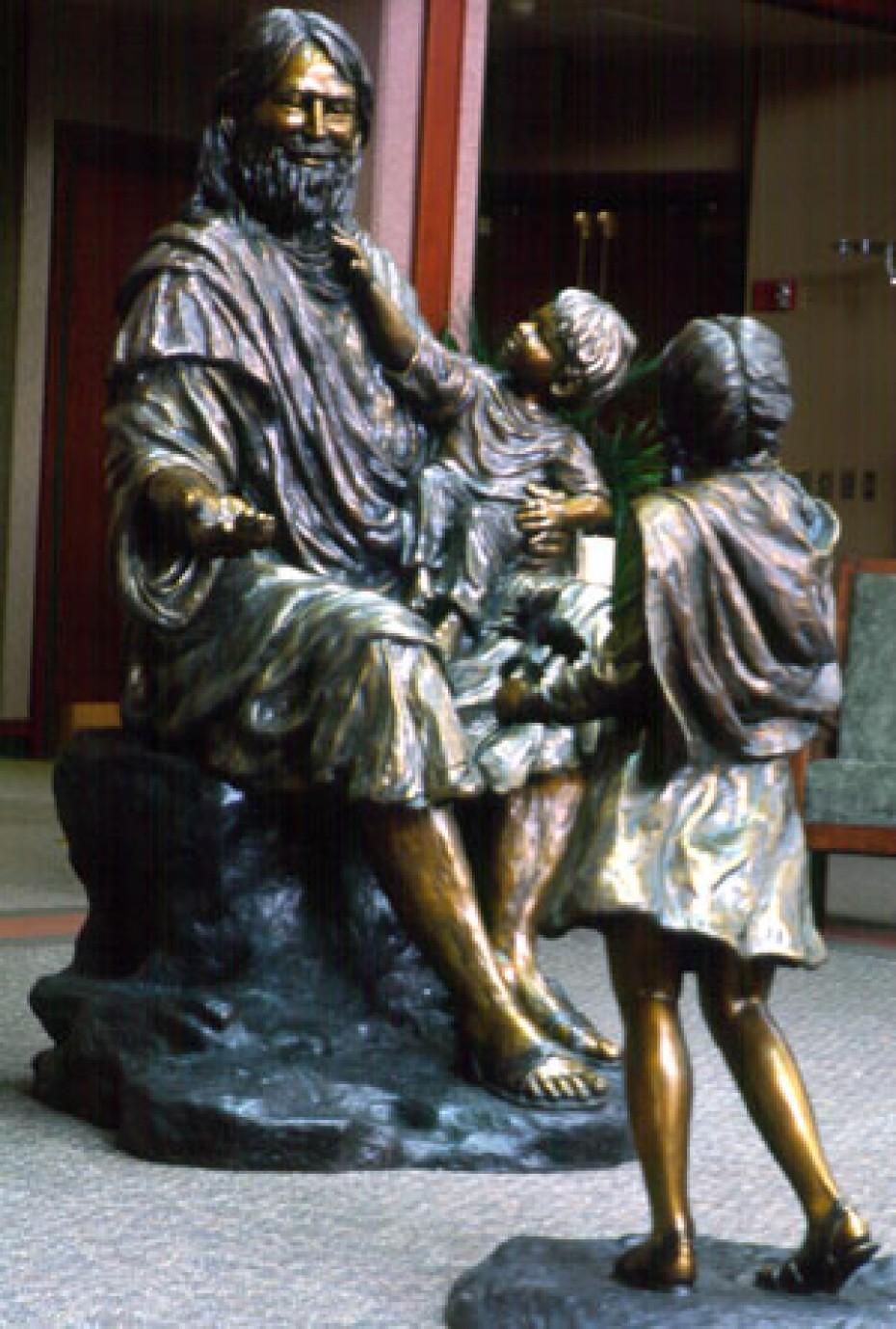
Big Jesus isn’t like Real Jesus. Real Jesus is much bigger than Big Jesus. Real Jesus is bigger than the universe.
Continue Reading ›10 Questions With Emily Kagiri (Part II)
Yesterday, Emily shared how God revealed His call on her life and what makes our Child Survival Program (CSP) unique among programs that work with infants and mothers. Today, Emily shares her vision for CSP.
6. In addition to the countries where CSP is already in place (Dominican Republic, Ecuador, Ethiopia, Haiti, India, Kenya, Peru, Philippines, Thailand and Uganda) what are some countries where you would like to see the program expand to?
Compassion works in developing countries, most of which have high child mortality rates. As I look into the 2006 international statistics on infant mortality, the countries I would hope to see us in are Rwanda, Burkina Faso, Togo* and Tanzania. However, it is very important for us to have reports on infant mortality in all the countries where we work. This will give us direction regarding which countries need priority.
7. Child mortality is a huge problem in developing countries. Do you think the Child Survival Program is having a real impact on this crisis?
Definitely. The CSP beneficiaries are mothers and babies, who are vulnerable in various ways as families live in varying difficult circumstances. If it were not for the Child Survival Program, many children who were malnourished would be either dead or still underdeveloped. Some would be dead from measles infection, but the Child Survival Program helped them receive the vaccine from the nearest medical facility. Some babies would be dead of AIDS, but the CSP supported their mothers by providing them with the right medicine so their children could be born without the virus. Some mothers and children would be dead from malaria, but CSP came in and gave them life by providing mosquito nets. When the Child Survival Program taught a mother the importance of hospital delivery and the mother practiced what she was taught, a healthy baby was delivered in a healthy and clean environment. CSP is making a difference.
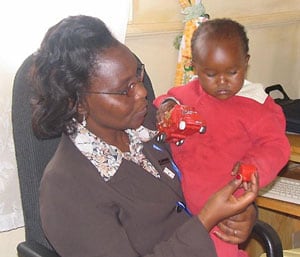
8. Tell me your favorite success story from the Child Survival Program. A story that you truly feel CSP made possible.
CSP stories are so many, I do not know which one to choose. But I would like to mention one child who was recruited into the program at 3 months. His mother had just passed away, and he was left under the care of his weak father and a grandmother who was the sole provider in the family. When a Child Survival Program started in their church, the grandmother was notified, so she brought in the baby. As time went by, the child started getting sick. Soon we found the child to be HIV positive. Then and there, the Child Survival Program staff started taking special care of this baby. Through the program, the baby received nutritional supplements, antiretroviral treatment, vaccinations against preventable childhood illnesses, as well as a treated mosquito net. The grandmother was taught how to provide the baby with proper nutrition, and slowly, the baby regained health, was up and about.
9. What is going on with this child and his family now?
The baby boy grew up to be a strong and admirable and gorgeous child. On the child’s fourth birthday the boy had to leave the program — thank God he then went to the Child Sponsorship Program. The boy now has a loving sponsor. Today he is a strong, healthy boy with a future and hope. He is well nourished, receiving education, getting medical care, and has hope for tomorrow.
If it were not for the Child Survival Program, who knows where this precious saint would be today? Maybe dead due to opportunistic infections, maybe malnourished, in and out of a hospital — but CSP saved him. God bless the Child Survival Program.
10. Why should someone become a CSP partner? What is the benefit to the partner?
Everybody should become a partner with the Child Survival Program! Supporting the program means being a part of changing a generation. Supporting CSP is giving children life, hope, a bright future, a chance in life and an opportunity to become all they would like to be when they grow up. The mothers or caregivers receive support and education, which raises their self-esteem and assures their families of an improved standard of living.
Read all the posts in the 10 Questions series.
*Compassion Togo will begin enrolling children later this year.
Continue Reading ›10 Questions With Emily Kagiri, Child Survival Ministry Director
Releasing children from poverty in Jesus’ name. It’s a simple statement that describes what we’re all about. But really, how does it work? How do we release children from poverty in Jesus’ name?
Brandy Campbell spoke with the ministry leaders of our child development model programs to give you an inside look at how we transform the lives of children in poverty. We’ll share their insights, thoughts and expertise over the next few weeks, but today we begin with Emily Kagiri and the Child Survival Program.

In 2007 Emily Kagiri moved with her husband and children from Kenya to Colorado Springs to take on the role of Child Survival Ministry (CSM) Director here at Compassion. She believes God began preparing her for this role when she was still a child herself.
1. How has God uniquely equipped you to work with the Child Survival Program?
When I was about 18 months old my grandmother was my caregiver. During this time I contracted tuberculosis (TB). There was no treatment for TB during these years, and my family had to completely depend on God for my healing. In Africa we highly believe in divine healing. What else would we do if there was nowhere to get help? While I was recovering, the government of Kenya started providing nutritious foods for the malnourished children in the community. This was my very own child survival program. I became healthy, strong and survived to face life in my world. For the rest of my life, I knew that helping babies like me was what God was calling me to do.
2. So, would you say that your childhood and healing gave you a passion for infants?
I have been there. My heart reaches out for these babies and mothers because I know if only we can have men and women giving to this program, many children will receive hope in life, many will survive the challenges of life, and women will learn who they are in God and will believe in their children.
3. You were instrumental in the success of CSP in Kenya. What made you decide to leave Africa to work with CSP on a more global level?
While I was still in Kenya, God gave me an opportunity to speak up for the children in the Child Survival Program as Compassion Kenya’s CSM director. I knew that if given an opportunity to speak up and touch the lives of women and babies at a larger scope, I would do it. My passion is to help people understand the global need, difficulties and situations of babies and pregnant mothers living in poverty in developing countries, and to show them that if only people would respond to this need many children would see their future years in life and become what they dream to become. So God decided that coming to the States would be the way to use this gracefully given potential. I only followed the leading of God — thank God He had prepared my family for this transition. The bottom line is that my being here has nothing to do with me but everything to do with God.
4. What makes the Child Survival Program unique among other organizations that work with infants and mothers?
The uniqueness of Compassion’s Child Survival Program stands out in one phrase: spiritual development. The fact that our Child Survival Program touches the spiritual being of a mother, a child, a family and a community is unique and makes all the difference in the lives of that family, baby and mother. CSP is a one-to-one home-based program in which staff members visit homes and educate mothers in the child’s own environment. It is then that the actual needs of the baby, mother, family and community will be known, seen and met accordingly.
5. Why did Compassion choose a home-based model for CSP?
The Child Survival Program is primarily home-based because this allows us to address the immediate needs of the baby and mother. When you get into a community and find that most children are malnourished, the best way to get to the root cause of this problem is to visit families in the community. During your visits, you will see and learn what children are fed and why. You also observe any cultural reasons for certain practices. Then you come up with an action plan from a knowledgeable perspective. In home visits, CSP workers teach mothers about parenting practices, including hygiene and nutrition, using their own locally available foods. Only during home visits can you assess whether what you have been teaching has been put into practice. Home visits create one-to-one relationships where mothers can confide in you and share their innermost fears and problems.
Come back tomorrow for the rest of Brandy’s interview with Emily.
Brandy Campbell is a feature writer at Compassion International. When she’s not chatting with Compassion execs, Brandy writes newsletter and web stories about Compassion’s ministry to children in poverty.
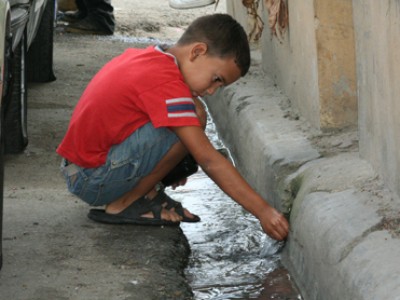
Tell Me a Story
I have a confession: I love reality TV shows. It’s true. Although I’m enough of a realist to realize that as viewers, we see a heavily edited version of actual reality, I still like watching the shows because they tell people’s personal stories. They tell stories about people that actually exist. I love people’s stories.
Communications at Compassion is largely about telling people’s stories. And it’s something I think we do well. However, some stories are most powerfully related by the people who actually experienced them. Something is lost in the translation of a personal story to a secondhand story … when it is no longer “my” experience, but “someone else’s.”
While we’ve known about the power of personal testimony for a while, we have only recently begun to delve into an area called social media. This is an exciting new venture for Compassion. There are so many new ways for people to share their stories, and we’re just beginning to explore all the possibilities. Through our social media efforts we want to give people a way to tell their own stories, in their own words, totally free of our “translation.”
We have created a section of compassion.com called Share Your Heart. We wanted a creative forum where users could share their personal experiences with poverty, whether it was something they read or heard, a movie they had seen, a personal trip they took or a trip with Compassion or with another organization. We just wanted to get people talking.
Some of the stories people have shared are inspiring. Some are funny. Some are evidence of God’s perfect timing. Some are challenging. There are also photos that tell stories of their own, in ways that words never could. Go check them out. No doubt you’ll be encouraged.
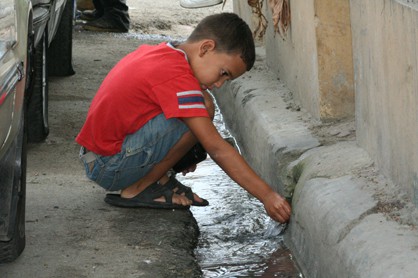
Dominican Republic (February 2007) Submitted by: Michael Patterson
Do you have a story of your own to share? How has God changed your heart towards children in poverty? Who or what has he used to change you? What one picture from your trip captured the entire experience? Share it with us. Don’t be shy.
You never know whose life will be changed by reading your story.
UPDATE: August 24, 2011 – The Share Your Heart section of compassion.com is no longer available.
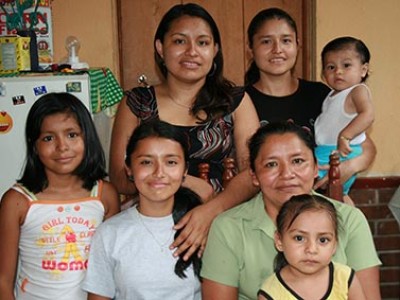
Lifting the Burden of the Family By One
I spend a fair amount of time educating people about Compassion and what we do and how we are different. I love the process, and I love helping tie all the loose-ended questions together for people. It’s pretty simple to explain what we are all all about and proceed from there…
We do child development in developing countries facilitated by the local church. We don’t use missionaries and every child is guaranteed to be taught the gospel. Whether they accept the Gospel is up to them. We work with the poorest of the poor to change the community inside out…starting with the kids and moving into the family….
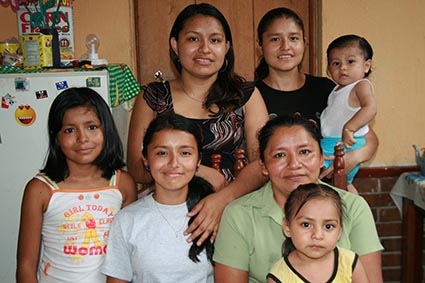
That last part is where the puzzle starts to make sense for people.
At Compassion, we build communities inside out…start with the kids and the work moves and extends into the family. Change a child’s life, change a family’s life, change the community.
Because we work with the local church, the church now has an equipping tool to reach families in ways they never could before by directly helping these little children.
You know…they get medical attention, meals, school clothes if needed, education and the Gospel. They are also taught vocational skills along with a little micro-industry from time to time.
It’s all pretty powerful when you see it in action. Not to mention the amazing impact writing letters has on these children and for you as a sponsor.
Then comes this question: Well, then how does it help the family? Oh, well…I’m glad you asked! These are just two examples.
- If the Compassion child development center is teaching the kids the importance of drinking clean water, then sometimes you will see Compassion staff pass this education on to the family: “We are giving your child clean drinking water and we want to make sure this continues at home. Here’s how to do this….”
- Another way is while these children are learning to read and write, chances are mom, dad, and other brothers or sisters don’t know how to read and write either. I’ve met several families over the years where their children have come home and taught the rest of the family how to read and write.
At the very end of the discussion with people, I can usually pinpoint when the big picture comes together.
They start talking about how they understand how helping one child helps the whole family by providing so much for their children and how cool it is to see the church literally grow in that community because so many are now accepting Christ into their lives, and then I follow up with this statement…You know, it lifts the burden of the family by one child.
At this point they get it. The light goes off and it all comes together. It’s something I came up with as my own little way of processing through the big picture. And then one day I was on a trip to El Salvador….
I walked into the home of one of our sponsored children in El Salvador with some of our artists in tow. We sat down with the family in this small 10 x 10 room where a family of five lived, slept, and ate.
Some of our group started asking questions. A little ways into the conversation, I asked the mother of the household, “how has your child being in the Compassion program helped your family?”
You know what she said? I have never heard this on a trip before.
She said, “It lifts the burden of our family by one child.”
Here’s my question for you. What does this mean to you? What would this look like in your own life if someone else had lifted the burden of your family by one child?
Rosa: An Amazing Woman
I met an amazing young woman this week while leading a trip to see Compassion’s work in Honduras. The young woman’s name is Rosa, and she is part of Compassion’s Leadership Development Program.*
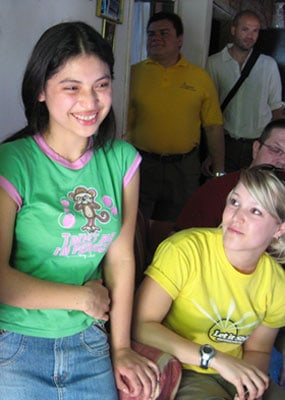 This university-based program, known as LDP, works with high achieving and high potential students from Compassion child development centers. The LDP program in Honduras is in its first year, and Rosa is one of 19 students in the inaugural class. It is inspiring to hear the LDP stories throughout the world, and I was honored to be in attendance at Ethiopia’s first LDP graduation a few months ago.
This university-based program, known as LDP, works with high achieving and high potential students from Compassion child development centers. The LDP program in Honduras is in its first year, and Rosa is one of 19 students in the inaugural class. It is inspiring to hear the LDP stories throughout the world, and I was honored to be in attendance at Ethiopia’s first LDP graduation a few months ago.
Compassion’s President, Wess Stafford, stood in front of the 24 Ethiopian graduates and congratulated them on completing their college degrees and then challenged them to be servant leaders in their communities and nation. He closed his talk to them by saying, “You may have been born into poverty, but poverty was not born into you.”
Rosa is a testimony to Wess’ statement. There were many times in her difficult life where she could have given up, and most of us would not have blamed her. However, if you spend just a few minutes with this remarkable 17-year-old girl, you will realize that giving up was not an option. She shared with us her daily schedule, and it is a great snapshot of the will and determination of Compassion’s LDP students.
6 a.m. – Wakes up each morning to clean the house and make sure all laundry is done for her mother and brother. Rosa’s mother raised all five of her children alone and works at a local restaurant cooking chicken.
8 a.m. – Prepares breakfast for her family.
9:30 a.m. – Begins baking tortillas to sell for the business she operates out of her home. Each day Rosa makes tortillas and people come from around the neighborhood to purchase them to eat for lunch. The money she earns from her business is used to help buy food for her family, and it also pays for her bus fare to and from the university.
12 p.m. – Finishes selling the tortillas and starts lunch for her 14-year-old brother. After he has eaten, she makes sure he gets off to school.
12:30 p.m. – Cleans up, eats her own lunch, and studies for her afternoon classes.
1:30 p.m. – Takes the city bus to the University of Tegulcigalpa, where she is a first-year student studying Business Administration.
7:30 p.m. – Returns to her home and spends the rest of the evening studying and spending time with her mother.
Rosa was asked what she would like to do once she graduates from university. “I eventually want to own and operate a business in my community but first I think I want to get my Masters degree,” she says.
The question, “What does success look like for Compassion International?” has become an easy one to answer because of students like Rosa.
*This content honors our historical Leadership Development Program. To learn more about our current youth development opportunities, click here. Brian Seay is an artist relations manager for Compassion, working with musicians and bands who advocate for Compassion and children in poverty. He was one of the bloggers on the Uganda blog trip.
The Graduate
Anthony’s Leadership Development Program graduation ceremony is today. Send him some love. And tell him you want pictures and a post, when he gets a chance, since your invitation probably got lost in the mail like ours did.

Amisi
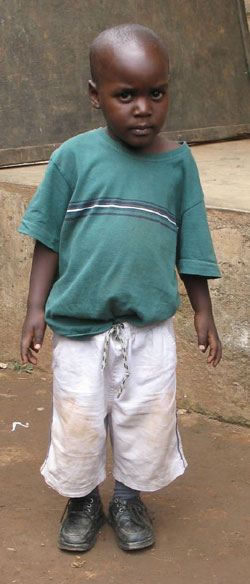 Last night was one of the best nights of my life. I got to meet Amisi, my 5-year-old sponsored boy; the Uganda office was kind enough to coordinate our visit.
Last night was one of the best nights of my life. I got to meet Amisi, my 5-year-old sponsored boy; the Uganda office was kind enough to coordinate our visit.
I have to say, Amisi has to be the cutest boy in the entire country. Of course, I’m sure I’m a bit biased. I was worried he would be scared or overwhelmed by Kampala since it’s such a large city. But he was so excited. As soon as he saw me, he ran to hug me. He loved the coloring books, stickers and his new ball, but nothing could compete with the doors in the hotel lobby that automatically opened. He’d never seen anything like it. He was squealing and laughing so loud I was afraid we’d get kicked out of the hotel!
He knows a few English words. He knows, “Jesus,” “Thank you,” and “sponsor.” He also knew enough to laugh at me as I tried out a few words in his native language.
I really didn’t think he would understand who I was, but the project director said he’s been telling all of his friends that he was going to meet his sponsor. He was excited all week.
If you are a sponsor, I would encourage you to check into visiting your child! It means so much to them — and to you! If you don’t already sponsor a child, please pray about it today!
My Biggest Fear
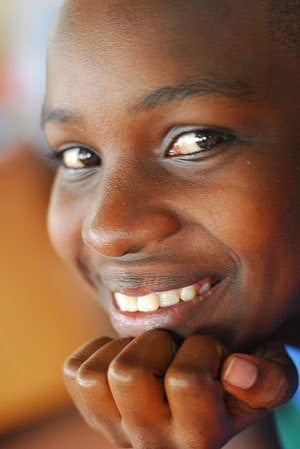 All of us have had a few highlights in our lives that changed us forever. Right now, I’m in the middle of one. I’m in Uganda gathering stories for Compassion. It’s my first trip to a developing country.
All of us have had a few highlights in our lives that changed us forever. Right now, I’m in the middle of one. I’m in Uganda gathering stories for Compassion. It’s my first trip to a developing country.
There’s only one problem. The thing that I was afraid would happen has happened. I have fallen head over heals in love with every child I’ve met. At each village we visit, children run up to you, wrap their arms around you, and before you know it, steal your heart.
Because poverty is so overwhelming, always before, I tried to distance myself from the stories. Without meaning to, I guarded my heart. But now these stories have faces and I’m completely attached.
But the surprising thing is, I don’t feel helpless. And that had been my biggest fear—finally coming face to face with poverty and feeling powerless to do anything. But I keep hearing from caregivers and children how much their lives have changed through Compassion’s programs. I can’t help but feel hopeful.
One mother today told me today how thankful she is that Compassion pays for her son’s malaria medicine. This has saved his life. Another told me there is no way her daughter could go to school without Compassion helping with school fees. Dickson, a student enrolled in the Leadership Development Program, said, “I hope Compassion sponsors and donors know their support is not in vain. You are helping to transform lives.”
So if you’re a sponsor or donor out there, I want to pass on these messages of hope. I pray they encourage your heart as much as they did mine.
Robyn Spencer, a full-time writer for Compassion International, is currently on her first Compassion trip to Uganda. Robyn is experiencing Compassion’s life-changing work first-hand, so she can educate sponsors and donors when she returns home.
The Reality of Giving – Is Oprah Right?
Forgive me for being somewhat confused. Oprah’s “The Big Give” TV show debuted on Sunday night to huge ratings – 15.6 million viewers – a huge hit for the ABC suits.
The show bases its obvious popularity on the benefits found in giving to the less fortunate, the causes of the broken and down-trodden. The reality of a nation in love with some one else’s reality, are we now minimizing the beauty of giving by watching philanthropy become the latest opportunity/victim to claim fame over?
In the series opener, Oprah meets the ten contestants and gives each an envelope with only the name and picture of a stranger whose lives they must forever change. Each contestant must use the resources awarded to them to drastically improve the life of their assigned person within five days, making the participant cope with the stress by using strategy and creativity.
As a professional whose work is involved in the cultivation of hearts that choose to give, I am torn between rejoicing at this opportunity to promote altruism and frustration that we have somehow made the sacred art of giving the impetus of yet another reality show.
Are we trivializing giving or promoting it? Are we advancing a cause or witnessing the thrill of someone fortunate enough to win their opportunity at personal wealth? I place myself in the homes of countless donors who have sacrificed their time and energy to bless the causes dear to their heart and wonder if somehow we have made their desire to give less impactful and certainly less noble. But why should I even worry?
I am reminded of Paul in his letter to the Philippians who when asked if it was right for others in the jail to promote the cause of Christ said flatly – as long as Christ is preached I rejoice.
By no means am I comparing Paul’s ministry to the modern reality show based on the hope of Oprah, but my confusion becomes more an opportunity to rejoice and reconsider. If my vocation requires me to hold in high esteem the end result of gifts given to benefit others, then shows that promote the same should have my support and not my condemnation. Like Paul demonstrated, I can not be the ultimate jury on someone’s motivation and heart — even if a million dollar prize lies on the other side of their motivation. My professional covenant to honor Christ and enhance relationships to the causes of His kingdom are not license to be critical of another’s rationale for serving, helping and loving.
I think I will reconsider what I view next Sunday. Perhaps less judgemental and suspicious, I will pause to rejoice at what is being said to millions of people who may not have realized that the sacred art of giving comes not in the promotion of self but in loving our neighbor well. In stooping to provide a hand even when the cameras have all been turned off.
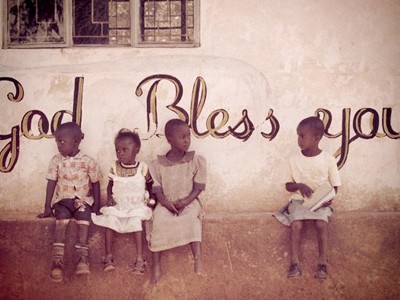
A Tribute to the Sponsor
Through the letters shared between the sponsor and the child, hope is not only stirred, but relationships are built, wounds healed and love blossoms. These and so many other things start a chain reaction not only in the child’s life but also in the lives of those around him or her, and impact is felt to generations.


